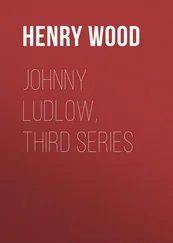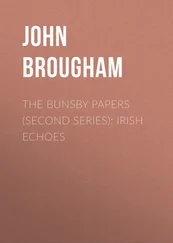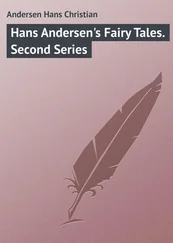Henry Wood - Johnny Ludlow, Second Series
Здесь есть возможность читать онлайн «Henry Wood - Johnny Ludlow, Second Series» — ознакомительный отрывок электронной книги совершенно бесплатно, а после прочтения отрывка купить полную версию. В некоторых случаях можно слушать аудио, скачать через торрент в формате fb2 и присутствует краткое содержание. Жанр: foreign_prose, literature_19, foreign_antique, на английском языке. Описание произведения, (предисловие) а так же отзывы посетителей доступны на портале библиотеки ЛибКат.
- Название:Johnny Ludlow, Second Series
- Автор:
- Жанр:
- Год:неизвестен
- ISBN:нет данных
- Рейтинг книги:3 / 5. Голосов: 1
-
Избранное:Добавить в избранное
- Отзывы:
-
Ваша оценка:
- 60
- 1
- 2
- 3
- 4
- 5
Johnny Ludlow, Second Series: краткое содержание, описание и аннотация
Предлагаем к чтению аннотацию, описание, краткое содержание или предисловие (зависит от того, что написал сам автор книги «Johnny Ludlow, Second Series»). Если вы не нашли необходимую информацию о книге — напишите в комментариях, мы постараемся отыскать её.
Johnny Ludlow, Second Series — читать онлайн ознакомительный отрывок
Ниже представлен текст книги, разбитый по страницам. Система сохранения места последней прочитанной страницы, позволяет с удобством читать онлайн бесплатно книгу «Johnny Ludlow, Second Series», без необходимости каждый раз заново искать на чём Вы остановились. Поставьте закладку, и сможете в любой момент перейти на страницу, на которой закончили чтение.
Интервал:
Закладка:
And now would anybody believe that this woman had only then come out of the Coneys’ house—where she had been with the same tale and request, and had received nearly the same relief? We never saw or heard of her again. The note did not reach Mr. Carden; no such patient applied to the infirmary. She was a clever impostor; and we got to think that the cheek had only been rubbed up with a little blistering-salve. Many another similar thing I could tell of—and every one of them true. So you must not wonder at Mrs. Coney’s unwillingness to interfere with this latest edition in the tramp line.
But she had given her promise: perhaps, as Jane put it, she could not do otherwise. And on the morning after the wedding she went over to Timberdale. I was sliding in the Ravine—for there was ice still in that covered spot, though the frost had nearly disappeared elsewhere—when I saw Mrs. Coney come down the zigzag by the help of her umbrella, and her everyday brown silk gown on.
“Are you here, Johnny! Shall I be able to get along?”
“If I help you, you will, Mrs. Coney.”
“Take care. I had no idea it would be slippery here. But it is a long way round to walk by the road, and the master has taken out the pony-chaise.”
“What wind is blowing you to Timberdale to-day?”
“An errand that I’m not at all pleased to go upon, Johnny; only Jane made a fuss about it before leaving yesterday. If I told the master he would be in a fine way. I am going to see the woman that you boys found in the shed.”
“I fancied Jane seemed to think a good deal about her.”
“Jane did think a good deal about her,” returned Mrs. Coney. “She has not had the experience of this sort of people that I have, Johnny; and girls’ sympathies are so easily aroused.”
“There was a romance about it, you see.”
“Romance, indeed!” wrathfully cried Mrs. Coney. “That’s what leads girls’ heads away: I wish they’d think of good plain sense instead. It was nothing but romance that led poor Lucy Ashton to marry that awful man, Bird.”
“Why does Lucy not leave him?”
“Ah! it’s easier to talk about leaving a man than to do it, once he’s your husband. You don’t understand it yet, Johnny.”
“And shall not, I suppose, until I am married myself. But Lucy has never talked of leaving Bird.”
“She won’t leave him. Robert has offered her– Goodness me, Johnny, don’t hurry along like that! It’s nothing but ice here. If I were to get a tumble, I might be lamed for life.”
“Nonsense, Mrs. Coney! It would be only a Christmas gambol.”
“It’s all very well to laugh, Johnny. Christmas gambols mean fun to you young fellows with your supple limbs; but to us fifty-year-old people they may be something else. I wish I had tied some list round my boots.”
We left the ice in the Ravine, and she came up the zigzag path easily to the smooth road. I offered to take the umbrella.
“Thank you, Johnny; but I’d rather carry it myself. It’s my best silk one, and you might break it. I never dare trust my umbrellas to Tom: he drives them straight out against trees and posts, and snaps the sticks.”
She turned into Timberdale Court, and asked to see Mrs. Broom. Mrs. Broom appeared in the parlour with her sleeves turned up to the elbow, and her hands floury. She had been housekeeper during old Mr. Ashton’s time.
“Look here,” said Mrs. Coney, dropping her voice a little: “I’ve come to ask a word or two about that woman—from the shed, you know. Who is she?—and what is she?”
But the dropping of Mrs. Coney’s voice was as nothing to the dropping of the housekeeper’s face. The questions put her out uncommonly.
“I wish to my very heart, ma’am, that the woman—she’s but a poor young thing at best!—had chosen any part to fall ill in but this! It’s like a Fate.”
“Like a what?” cried Mrs. Coney.
“And so it is. A Fate for this house. ’Tis nothing less.”
“Why, what do you mean, Broom?”
Mother Broom bent her head forward, and said a word or two in Mrs. Coney’s ear. Louder, I suppose, than she thought for, if she had intended me not to hear.
“Raves about Captain Bird!” repeated Mrs. Coney.
“He is all her talk, ma’am—George Bird. And considering that George Bird, blackleg though he has turned out to be, married the young lady of this house, Miss Lucy Ashton, why, it goes against the grain for me to hear it.”
Mrs. Coney sat down in a sort of bewilderment, and gave me the silk umbrella. Folding her hands, she stared at Mother Broom.
“It seems as though we were always hearing fresh news about that man, Broom; each time it is something worse than the last. If he took all the young women within his reach, and—and—cut their heads off, it would be only like him.”
“‘George!’ she moans out in her sleep. That is, in her dreaming, or her fever, or whatever it is. ‘George, you ought not to have left me; you should have taken care of me.’ And then, ma’am, she’ll be quiet a bit, save for turning her head about; and begin again, ‘Where’s my baby? where’s my baby?’ Goodness knows ’twould be sad enough to hear her if it was anybody’s name but Bird’s.”
“There might be worse names than his, in the matter of giving us pain,” spoke Mrs. Coney. “As to poor Lucy—it is only another cross in her sad life.”
“I’ve not told this to anybody,” went on Mother Broom. “Jael Batty’s three parts deaf, as the parish knows, and may not have caught Bird’s name. It will vex my master frightfully for Miss Lucy’s sake. The baby is to be buried to-day. Mr. Charles has stayed to do it.”
“Oh, indeed!” snapped Mrs. Coney, and got up, for the baby appeared to be a sore subject with her. “I suppose the girl was coming across the country in search of Bird?”
Broom tossed her head. “Whether she was or not, it’s an odd thing that this house should be the one to have to succour her.”
“I am going,” said Mrs. Coney, “and I half wish I had never come in. Broom, I am sorry to have hindered you. You are busy.”
“I am making my raised pies,” said Broom. “It’s the second batch. What with master’s coming marriage, and one thing and another, I did not get ’em done before the new year. Your Molly says hers beat mine, Master Ludlow; but I don’t believe it.”
“She does, does she! It’s just like her boasting. Mrs. Todhetley often makes the pork-pies herself.”
“Johnny,” said Mrs. Coney, as we went along, she in deep thought: “that poor Lucy Bird might keep a stick for cutting notches—as it is said some prisoners used to do, to mark their days—and notch off her dreadful cares, that are ever recurring. Why, Johnny, what’s that crowd for?”
The church stood on the right between Timberdale Court and the village. A regular mob of children seemed to be pressing round the gate of the churchyard. I went to look, leaving Mrs. Coney standing.
Charles Ashton was coming out of the church in his surplice, and the clerk, old Sam Mullet, behind him, carrying a little coffin. The grave was in the corner of the burial-ground, and Mr. Ashton went straight to it, and continued the service begun in the church. If it had been a lord’s child, he could not have done it all in better order.
But there were no mourners, unless old Mullet could be called one. He put the coffin on the grass, and was in a frightful temper. I took off my hat and waited: it would have looked so to run away when there was no one else to stand there: and Mrs. Coney’s face, as cross as old Mullet’s, might be seen peering through the hedge.
“It’s come to a pretty pass, when tramps’ brats have to be put in the ground like honest folks’s,” grunted Sam, when Mr. Ashton had walked away, and he began to fling in the spadefuls of earth. “What must he needs go and baptize that there young atom for?—he ain’t our parson; he don’t belong to we in this parish. I dun-no what the world be a-coming to.”
Читать дальшеИнтервал:
Закладка:
Похожие книги на «Johnny Ludlow, Second Series»
Представляем Вашему вниманию похожие книги на «Johnny Ludlow, Second Series» списком для выбора. Мы отобрали схожую по названию и смыслу литературу в надежде предоставить читателям больше вариантов отыскать новые, интересные, ещё непрочитанные произведения.
Обсуждение, отзывы о книге «Johnny Ludlow, Second Series» и просто собственные мнения читателей. Оставьте ваши комментарии, напишите, что Вы думаете о произведении, его смысле или главных героях. Укажите что конкретно понравилось, а что нет, и почему Вы так считаете.












